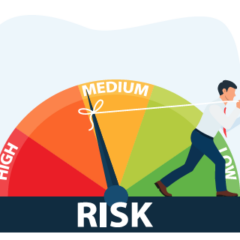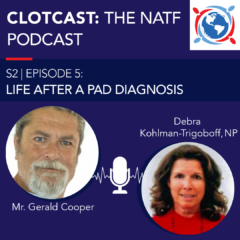Last updated on
High Blood Pressure: What it Is & Why it Matters
In this edition of Patient Pulse, we’re pleased to welcome Dr. Jennifer Cluett for a discussion on blood pressure and why it matters. Dr. Cluett is a board-certified internal medicine physician and hypertension specialist at Beth Israel Deaconess Medical Center (BIDMC) in Boston, MA, and an Associate Professor of Medicine at Harvard Medical School. She serves as founding Clinical Director of the BIDMC Hypertension Center and Hypertension Research Group.
In the webinar, Dr. Cluett addresses:
- What blood pressure is
- Why high blood pressure (hypertension) is important
- How high blood pressure is diagnosed and treated
Key takeaways:
- Know YOUR numbers!
- Know about (and avoid) things that raise your blood pressure
- Understand and practice healthy habits to lower blood pressure
- Take medications (if needed) consistently
Full Video Transcript
I’m Jennifer Cluett. I’m a primary care physician and then over the past 10 years have developed a special clinical interest in hypertension. I’m going to talk to you about high blood pressure or hypertension – what it is and why that matters.
And just a brief overview of what we’re going to cover: we’re going to talk a little bit about what blood pressure is exactly, and why knowing if you have high blood pressure is so important. We’re going to talk a little bit about how it’s diagnosed and then we’ll cover a little bit of the basics of treatment.
So, before we get into what it means to have high blood pressure, I’m going to first make sure that we all understand exactly what blood pressure is. It’s the pressure of the blood against our blood vessels – or the walls of our blood vessels. Systolic blood pressure, which is written at the top, refers to the maximum blood pressure in a system when your heart is beating. And diastolic blood pressure—or the bottom number—refers to the lowest blood pressure, which usually happens when your heart is relaxing and filling with blood and getting ready for the next beat.
By convention, we measure blood pressure in millimeters of mercury, and the abbreviation for that is mmHg – that’s why you’ll see that written next to blood pressures often. How do you know if you have high blood pressure? In 2018, the American Heart Association, along with the American Stroke Association, the American College of Cardiology, and about a dozen or so other organizations published a new guideline that redefined our blood pressure thresholds.
Since that time, which has been about 5 years ago now, we have defined hypertension as having a systolic reading over 130 or a diastolic reading over 80, so 130/80 mmHg. And in general, for most people, especially for people who’ve had an event like a heart attack or a stroke, the goal blood pressure is to be under those numbers 130 and 80. There are definitely some exceptions to that, so make sure you have a conversation with your own healthcare teams so that you can know what your own personal blood pressure goal might be.
Moving on to why hypertension is so important, first and foremost, I’ll say it’s the most significant modifiable risk factor for cardiovascular disease. Nearly half of adults in the United States have hypertension, about 115 million people. It’s more common as we get older, and almost 75% of us, over the age of 60, will have hypertension. Only 1 in 4 adults have their blood pressure controlled. It’s the most common reason for outpatient office visits, and it’s the most common reason to have chronic prescribed medications.
Why is hypertension important? If left uncontrolled, over time, high blood pressure can lead to many different health problems like strokes, vision loss, heart failure, heart attacks, kidney disease or kidney failure, or sexual dysfunction.
How do we diagnose hypertension? You are your own best advocate, and knowledge is power. So advocate for yourselves to have your blood pressure checked properly when you go to the office. On your end, you’d like to try to arrive early and be prepared. You want to arrive and be able to rest for at least 10 to 15 minutes—ideally a little bit more if you can—before you need to have your blood pressure measured.
How you’re positioned when your blood pressure is measured really matters. And things that are seemingly minor like crossing your legs or not having your back supported make a really big difference. Don’t be afraid to ask them to repeat your blood pressure if it’s been checked using proper technique because often, if we check it again, blood pressure readings can come down a little bit.
I said I would go over these factors that impact blood pressure, and I really love this chart because it gives numbers to an estimate for how much these different elements of your positioning can raise your blood pressure. And some of these may be surprising like I said the legs crossed, a full bladder. I also want to point out that all of these the potential impact is to create a higher blood pressure than you really have. And that’s important because we want to make sure you have the most accurate blood pressure when you go to the doctor’s office.
I want to take a little more time to talk about the bare cuff because you can see that has sort of the widest range of impact. And I think it’s also one that falls by the wayside a lot of times in busy doctor’s offices. I’ve had my own blood pressure checked when I went to the doctor over something like a sweater like I’m wearing right now. And frequently what happens because people are rushed is they’ll push the sweater or the clothing up, and you create a bit of a tourniquet effect, and so that makes a higher blood pressure beneath this tourniquet or the pushed-up sleeve. So, make sure that you’re able to get a bare arm ready to get your blood pressure checked when you go to the doctor’s office because otherwise, we might get a reading that’s falsely elevated or higher than your true blood pressure.
In addition to office blood pressure, it’s really important, if you can, to monitor your blood pressure at home. And some of you may already have home blood pressure cuffs, which is great. I love it when my patients have those. It’s important that it’s a blood pressure cuff that’s either been checked for accuracy or is on a validated list. And so, we usually recommend going to a website, www.validatebp.org, and that lists different types of home blood pressures that have been checked for accuracy. You want to steer away from sort of popular testing like Consumer Reports or Wirecutter and things like that.
You don’t have to spend a fortune to get a high-quality blood pressure cuff. In fact, you can get them for as little as $35, and in many cases, insurances will cover some or part of them. And then I advise that my patients bring it in to their routine appointments. You’ve gotten there 10 to 15 minutes early, and you’re sitting there waiting for your doctor or your nurse practitioner – that’s a good opportunity to take out your own blood pressure cuff and check your blood pressure as close as possible to how it’s been checked in the office to see if your blood pressure machine is in the same ballpark.
You want to make sure that you’re checking it at home as directed by your medical team. One of the mistakes I often see when patients come in is they only check their blood pressure when they feel sick for some reason. And so sometimes, maybe a headache itself can raise blood pressure. And it’s not that it’s unimportant to know that your blood pressure’s high when you have a headache, but if you’re trying to make adjustments to medications, that may not be the most accurate “long-term” blood pressure reading for you.
Our usual protocol is that we ask patients to check their blood pressure at home twice a day—in the morning and then again in the evening—and we use an average over about a week. And if things look good, you can certainly check it a lot less frequently moving forward. And then you want to make sure if you’re checking it at home that you’re sharing those readings with your medical team and getting their feedback on how they think you’re doing.
So, before we talk about treatment, I always like to go over some medications that can raise blood pressure. There’s a number of medications that are prescribed and that can raise blood pressure. Some of them like stimulant medications, prednisone or other steroids, and there’s a number of other ones. I’m not going to go into those in too much detail because presumably your medical team will know about them. But I do think it’s worthwhile spending some time going over the over-the-counter medications that can raise blood pressure. Because many people get them over the counter, your medical team may not know that you’re taking them, and you may not know that they can raise your blood pressure.
The first one, and probably the most common one, is pain medication. Anything in the family of Aleve, ibuprofen, Motrin, those types of medications can temporarily raise your blood pressure. And worse yet, they interfere with a mechanism of how many blood pressure medications work. And so not only are they causing your blood pressure to be elevated, they’re making your medicine less effective.
Cold medications, specifically pseudoephedrine, can raise your blood pressure. If you take a lot of energy drinks or caffeine, that can cause temporary changes in your blood pressure. Some of the things you can get over the counter for weight loss may cause some elevated blood pressure. And then it’s important to note that herbal supplements aren’t necessarily safe just because they’re natural. So, things like arnica, ephedra, ginseng, and black licorice can all cause elevated blood pressure. And you just want to make sure that you’re telling your medical team if you’re using these on a regular basis. And some illegal drugs can raise your blood pressure as well.
So how is hypertension treated? One of my favorite things about it is at the cornerstone of treatment is lifestyle. Exercise is really important, a heart-healthy diet like a DASH diet (and we’ll talk about that a little bit more), reducing the amount of sodium in your food, and limiting your alcohol consumption – so specifically for women, that’s no more than one drink per day, and for men, it’s no more than two drinks per day. If you smoke tobacco, try to quit. Obtaining or maintaining a healthy weight can help lower blood pressure as can getting a good night’s sleep.
The DASH diet refers to Dietary Approaches to Stopping Hypertension. It’s a diet that’s high in potassium, calcium, and magnesium, but it’s also low in sodium or salt, saturated fats, and other added sugars. It’s important to get vitamins from a wide range of healthy foods or “eating the rainbow” – you can’t just take a supplement for potassium, calcium, and magnesium and get the same effects.
So, if your blood pressure is not at goal after lifestyle changes, prescription medications can often be necessary. And just to put it out there that most patients are going to need 2 or 3 or more medications to get their blood pressure to goal. These medicines are generally taken long term. It’s not like an antibiotic where you can take it and the problem goes away. You need to take them daily and long term. And often, they need to be increased or adjusted over time as our blood pressure changes throughout the course of our life and among other health issues.
So, some key points. It’s important to know your numbers and I gave you some tools for how to do that. Where possible, you want to avoid those things that can raise your blood pressure; or if you need to have them or do them, make sure that your medical team knows about them. Optimize healthy habits where you can. When I’m talking to patients, I call these our windows of opportunity. We all may have some different windows of opportunity where we can improve our heart health and reduce our risk for thrombotic events.
And then if you are prescribed medications, take them consistently. And make sure you share with your providers any issues about cost, affording your medications, any side effects from your medicines, or anything like that. Because if we don’t know about them, we can’t really help you work around them or find other medicines that may work more effectively for you.



